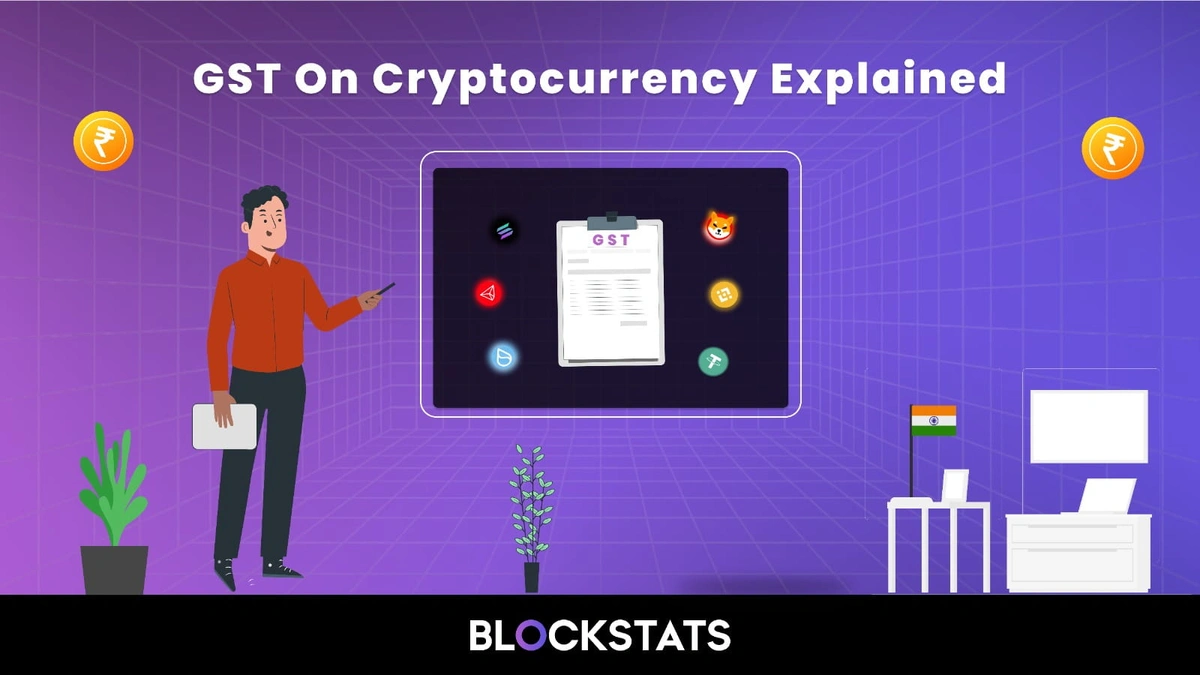Crypto and GST: What Every Investor & Trader Needs to Know?
The rise of cryptocurrencies like Bitcoin and Ethereum has led Indian authorities to define not just income tax rules but also the Goods and Services Tax (GST) implications on crypto transactions. While most investors know about the 30% income tax on profits and the 1% TDS rule, GST adds another layer of complexity, especially for businesses, exchanges, and active traders.
If you are wondering whether you need to pay GST on your crypto transactions or how GST is applied to trading fees and services, then at Blockstats, we have a simple breakdown so you feel confident during the tax season.
Is GST Applicable to Crypto in India?
Yes, but not on every transaction. GST does not apply to the crypto asset itself when it is bought or sold by an individual investor. Instead, GST applies to services and activities involving crypto, such as:
-
Trading and Exchange Fees
-
When you buy or sell crypto through an exchange, the exchange charges a fee (maker/taker or brokerage fee).
-
These fees are treated as services and are subject to 18% GST.
-
Crypto Mining
-
If you mine cryptocurrency as a business and provide computing power or mining services to others, the service component can attract GST (typically at 18%).
-
However, if you mine only for yourself and later sell the mined crypto, GST does not directly apply to the asset sale (though income tax will still apply).
-
NFT Platforms and DeFi Services
-
Platforms facilitating NFT sales or decentralized finance (DeFi) services may need to charge GST on their platform fees or commissions.
4. Crypto Businesses
-
Companies running exchanges, brokerages, or wallet services must register for GST if their turnover exceeds ₹20 lakh (₹10 lakh for some states) and charge GST on applicable services.
Does GST Apply to Buying or Selling Crypto Itself?
For regular investors, buying and selling crypto tokens directly is not treated as a supply of goods or services under GST law. You only pay:
-
The exchange trading fee plus 18% GST on that fee, and
-
The applicable 30% income tax on profits, calculated separately under the Income Tax Act.
There is currently no GST on the transaction value of the crypto itself for retail buyers or sellers.
How GST Affects Your Costs as an Investor?
While you do not directly pay GST on the asset, the 18% GST on trading fees increases your transaction costs. For example:
-
If an exchange charges a ₹1,000 fee for a trade, you will pay an additional ₹180 as GST.
-
These costs add up for frequent traders and should be factored into your profit calculations.
Record-Keeping and Compliance
If you are a business (exchange, broker, or crypto service provider):
-
You must register for GST if your revenue crosses the threshold.
-
Maintain detailed invoices for services like trading fees, commissions, or mining services.
-
File monthly or quarterly GST returns, as per your category.
For individual investors:
-
Keep a record of all exchange fee invoices, as these include GST charges.
-
These invoices help you track trading costs for accurate profit and tax reporting.
Why This Matters?
The Indian tax authorities are tightening compliance around cryptocurrencies, and failure to account for GST can result in penalties for businesses. Even if you are just an investor, understanding where GST applies helps you avoid confusion and ensures your records are correct for both income tax and audit purposes.
